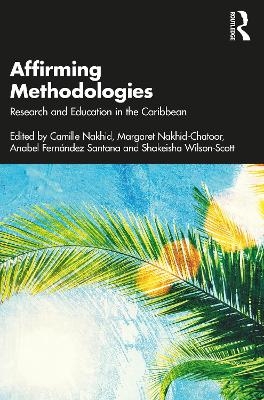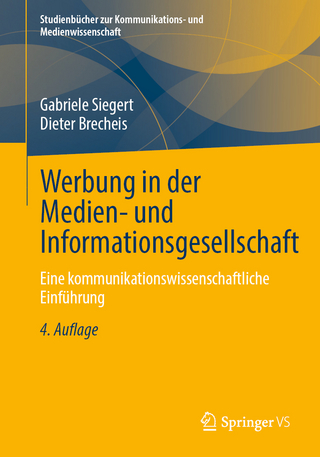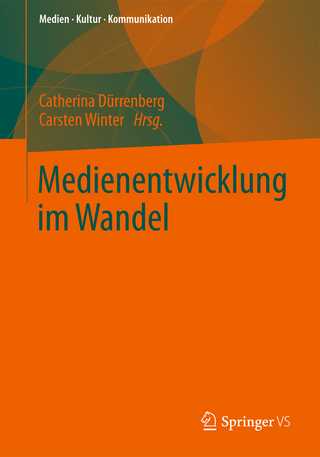
Affirming Methodologies
Routledge (Verlag)
978-1-032-05308-0 (ISBN)
Affirming Methodologies: Research and Education in the Caribbean centres local and indigenous ways of knowing in research and education praxis in the Caribbean. The research methodologies and pedagogies are presented in this book within an Affirming Methodologies framework. They bring forward localized epistemologies whereby Caribbean ways of being and knowing are affirmed, and the expected western hierarchies between researcher and researched are removed.
The chapters present approaches to knowledge construction and knowledge sharing based on practices, lived experiences, traditions, language patterns, and rituals of Caribbean communities. The importance of an Affirming Methodologies approach is demonstrated, and the characteristics of culturally affirming research methodologies and pedagogies in diverse environments including Cuba, Trinidad and Tobago, Jamaica and the Caribbean diaspora in Aotearoa New Zealand and Canada are explored and presented. Grounded on an understanding of the authors’ Caribbean positionality, ontological distinctions within the Caribbean research context are considered. This book moves forward from a decolonizing methodology approach, and, as such, the chapters are written, not in opposition to, or tested against Eurocentric approaches to research, but deeply rooted in a Caribbean ethos.
This book will engage researchers (both qualitative and quantitative), postgraduate students, academics, practitioners, policymakers, community workers, and lay persons who seek to employ culturally relevant local and indigenous research approaches in their work. Each chapter offers practical suggestions on the 'how' of research practice, making them accessible, relevant, and flexible for novice and seasoned researchers alike.
Camille Nakhid is from Trinidad and Tobago and is a Professor in the School of Social Sciences and Public Policy at Auckland University of Technology. Her research interests include culturally relevant research methodologies, and social issues impacting ethnic and migrant communities. Margaret Nakhid-Chatoor is a Psychologist and an Assistant Professor at the University of Trinidad and Tobago (UTT) in the Department of Social Sciences. Her research areas include at-risk youth, the parental bereavement of children and adolescents and interventions structured around grief and loss in families. Anabel Fernández Santana is a Cuban sociologist based in Aotearoa New Zealand. Her academic work has revolved around culturally affirming methodologies, culture and identity. After obtaining her PhD from Auckland University of Technology, Anabel’s practice has interwoven culturally affirming research with innovation for social change alongside communities. Shakeisha Wilson-Scott is a trained social scientist with over 15 years of experience teaching at the tertiary level. Her research interest has largely focused on marginalized groups such as persons with disabilities. She expects that the current work on Affirming Methodologies will be of great value in her own teaching experiences and work at the grassroots levels.
Introduction: Defining Affirming Methodologies and Articulating a Caribbean Space; PART I: Culturally Affirming Methodologies for Caribbean Research 1.Researcher Positioning in the Caribbean Research Space 2. Liming Methodology as a Culturally Affirming Approach to Research in Caribbean Contexts 3. Mash-Up as Method: Building Community-Based Approaches to Caribbean Feminist Research; PART II: Affirming Caribbean Pedagogies in Academia 4. Shifting from Hegemonic Teaching and Practices to Liberating and Affirmative Caribbean Pedagogies 5. Affirming an Endonormative Approach in Language Research Design in the Caribbean 6. Comparative Collaboration: Possibilities and Positionalities within Culturally Affirming Methodologies 7. Popular Education as an Emancipatory Approach to Knowledge Construction: Experiences from Cuba; PART III: Affirming Indigenous Practices 8. Groundings and Rastafari: Re-territorialising Caribbean Indigenous Knowledges 9. Affirming Methodologies in Peace and Conflict Studies 10. Cultural Affirmation through Meaning Reconstruction of Rituals and Practices within the Caribbean Conclusion
| Erscheinungsdatum | 11.07.2022 |
|---|---|
| Zusatzinfo | 1 Tables, black and white; 2 Line drawings, black and white; 7 Halftones, black and white; 9 Illustrations, black and white |
| Verlagsort | London |
| Sprache | englisch |
| Maße | 156 x 234 mm |
| Gewicht | 340 g |
| Themenwelt | Sozialwissenschaften ► Kommunikation / Medien ► Kommunikationswissenschaft |
| Sozialwissenschaften ► Pädagogik ► Erwachsenenbildung | |
| Sozialwissenschaften ► Soziologie ► Spezielle Soziologien | |
| ISBN-10 | 1-032-05308-9 / 1032053089 |
| ISBN-13 | 978-1-032-05308-0 / 9781032053080 |
| Zustand | Neuware |
| Informationen gemäß Produktsicherheitsverordnung (GPSR) | |
| Haben Sie eine Frage zum Produkt? |
aus dem Bereich


